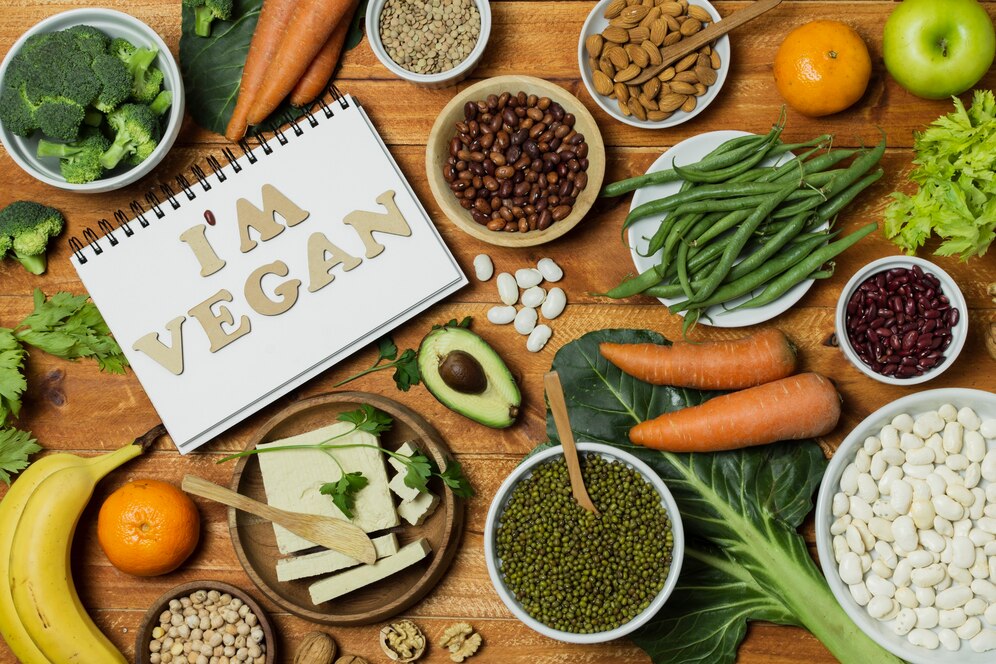Benefits of Vegan Eating

If you’ve ever wondered whether going vegan could really improve your health, you’re not alone. Many people question the true benefits of a vegan diet, especially with so much mixed information out there. After adopting a vegan lifestyle myself, I can confidently say that the benefits of vegan eating go beyond just weight loss. In this article, I’ll share my own experience and walk you through some of the key health benefits that come with eating plant-based foods.
What Happens to Your Body When You Go Vegan?
When I first transitioned to a vegan diet, I didn’t know what to expect. I had heard stories of people losing weight, feeling more energized, and even reversing health issues like high cholesterol, but I was skeptical. To my surprise, within just a few weeks, I noticed several positive changes. My digestion improved, and I didn’t feel as bloated after meals. I felt lighter, more energetic, and generally more clear-headed.
But the benefits didn’t stop there. Over time, I noticed my skin cleared up too. I used to struggle with occasional breakouts, but after eating more whole plant-based foods, my skin looked healthier, and I felt more confident.
However, the transition wasn’t all smooth sailing. I did experience some early challenges, particularly with Vitamin B12 and iron levels. These are nutrients that vegans need to pay close attention to, and I quickly learned that a balanced vegan diet isn’t just about cutting out animal products—it’s about choosing the right plant-based alternatives to get all the nutrients your body needs. For me, this meant adding more fortified foods like plant-based milks and nutritional yeast, as well as focusing on iron-rich foods like lentils and spinach.
Are Vegans Actually Healthier?
One of the biggest questions I had when starting my vegan journey was, “Will I actually be healthier?” After months of eating plant-based, I can say with certainty that the answer is yes—for most people, being vegan can lead to healthier outcomes.
In my case, I saw significant improvements in my cholesterol levels, which had been a concern before I switched to veganism. I also lost a few pounds without really trying. But it’s not just about weight loss—veganism can help reduce the risk of heart disease, lower blood pressure, and improve your blood sugar levels. Many studies have shown that a plant-based diet is linked to a lower risk of chronic diseases, such as type 2 diabetes and certain cancers.
One thing to keep in mind, though, is that simply being vegan doesn’t automatically make you healthier. It’s important to focus on whole, nutrient-dense foods rather than relying on processed vegan junk foods, which are still available. For example, it’s easy to grab a vegan burger or a sugary plant-based snack, but they won’t offer the same health benefits as eating fruits, vegetables, whole grains, and legumes.
Benefits of Being Vegan for a Week
I’ll admit, when I first started, I was unsure if a vegan diet could really make a difference in such a short amount of time. But after just a week, I started feeling the benefits—particularly in terms of energy. I no longer felt sluggish after meals, and I didn’t need that afternoon coffee to stay awake.
What was even more surprising to me was the improvement in my digestion. After one week of eating more fiber-rich, plant-based foods, I felt less bloated, and my stomach felt more settled after meals. For anyone considering trying veganism, even a short-term commitment like a week can help you notice these improvements.
Are There Benefits to a Vegan Diet?
Absolutely! The nutritional benefits of a vegan diet are vast. Vegan eating encourages a higher intake of antioxidants, fiber, and healthy fats, all of which can improve your overall health.
One of the biggest benefits I’ve personally noticed is the increase in energy levels. Eating plant-based foods that are full of vitamins, minerals, and fiber naturally boost your energy without leaving you feeling weighed down by heavy, animal-based meals. For many people, cutting out processed foods and switching to more natural, whole foods is an immediate game-changer.
Also, the environmental benefits of going vegan can’t be ignored. Reducing your consumption of animal products can significantly reduce your carbon footprint, conserve water, and help combat deforestation, which is something that became more important to me once I saw the broader impact of my food choices.
If you’re looking for more ways to boost your health through plant-based eating, you’ll want to check out how a plant-based diet can help reduce inflammation naturally. Inflammation is a key issue for many people, and a plant-based diet is one of the most effective ways to manage it.
What Are the 5 Most Important Rules of a Vegan Diet?
After months of experimenting with my own vegan diet, I’ve learned a few rules that are essential for getting the most out of a plant-based lifestyle:
- Focus on Whole Foods: Make fruits, vegetables, legumes, grains, and nuts your staples. While vegan processed foods can be convenient, they don’t always offer the same health benefits.
- Pay Attention to Protein: Unlike the myth that vegans don’t get enough protein, plant-based protein sources are abundant. Include things like lentils, beans, tofu, quinoa, and tempeh in your meals to meet your protein needs.
- Supplement Wisely: It’s important to supplement with Vitamin B12 and Vitamin D, as these nutrients are not found in sufficient amounts in plant-based foods. I’ve found B12 supplements to be essential to my own health.
- Eat a Variety of Foods: Vegan diets can sometimes fall into a repetitive pattern, so it’s important to diversify your meals to ensure you’re getting a range of nutrients.
- Drink Water: A high-fiber diet can sometimes lead to bloating if you’re not drinking enough water. Make sure to stay hydrated throughout the day.
What Are Vegans Most Likely to Be Deficient In?
While vegan diets are incredibly nutritious, there are a few nutrients that can be more difficult to get in adequate amounts. Vitamin B12, iron, and omega-3 fatty acids are some of the most common deficiencies I’ve seen in both myself and my clients who follow a plant-based diet.
To prevent deficiencies, I focus on eating fortified foods, taking supplements when necessary, and choosing iron-rich plant foods like spinach, beans, and quinoa. I’ve also made sure to include omega-3 sources like flaxseeds and walnuts to keep my nutrient intake balanced.
What Is the Healthiest Diet?
The healthiest diet is one that is balanced, nutrient-dense, and tailored to your unique needs. While there is no one-size-fits-all approach, a vegan diet can be incredibly healthy when done correctly. It offers a wealth of benefits, especially when it comes to heart health, weight management, and boosting energy levels.
That said, the healthiest diet is one that works for you—whether that’s a vegan, vegetarian, or omnivorous diet. The key is to choose nutrient-dense, whole foods and to listen to your body’s needs.
Conclusion: Why You Should Consider a Vegan Diet
In my experience, the benefits of being vegan extend far beyond just physical health—they include feeling more connected to the environment and animals, as well as fostering a mindset of sustainability. Whether you decide to go fully vegan or just try it for a week, the benefits are clear. From improved energy levels to better digestion and heart health, a vegan diet can offer a range of positive changes.
If you’re considering making the switch, take it one step at a time. Start by adding more plant-based meals into your week and see how you feel. The benefits will be worth it, and I can promise you won’t look back.

